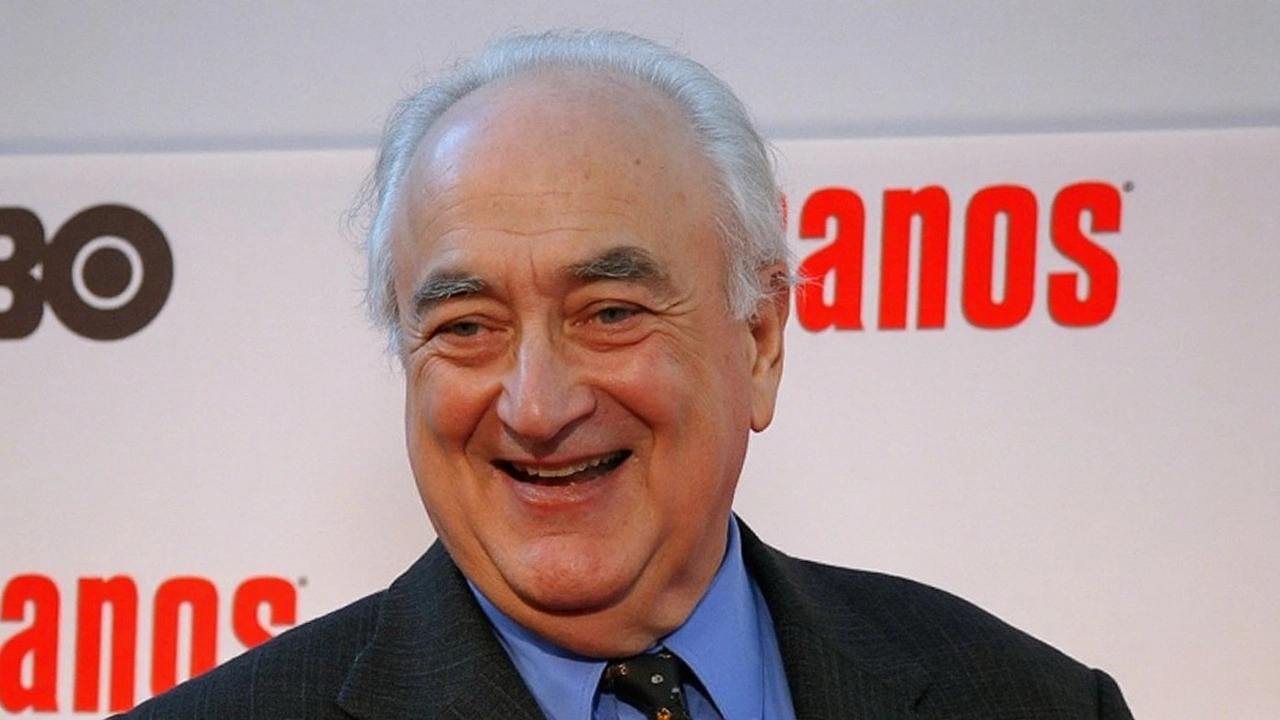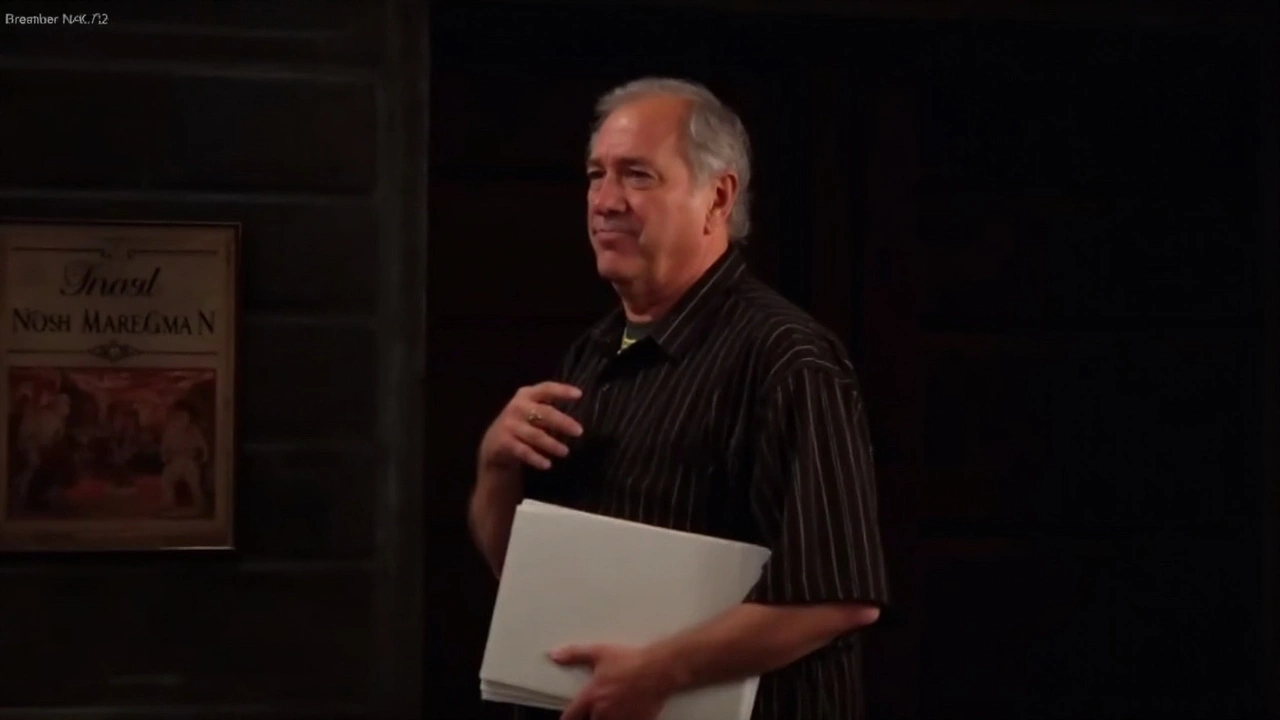A late-blooming star who made every scene count
He didn’t become a TV regular until his 60s. On August 23, 2025, Jerry Adler — the veteran character actor best known as Herman “Hesh” Rabkin on HBO’s The Sopranos — died peacefully in his sleep at his home in New York City, his family confirmed through Riverside Memorial Chapel. He was 96.
Adler’s path to screen fame was anything but direct. Born on February 4, 1929, in Brooklyn, he grew up in a Yiddish-speaking, observant Jewish household steeped in theater. He was the great-nephew of Jacob Pavlovich Adler, a towering figure of Yiddish theater, and a cousin of Stella and Luther Adler, who helped shape American acting in the 20th century. His father, Philip, managed productions for New York’s Group Theatre, so backstage life was the family business.
That’s where Adler started and thrived for decades. He worked as a stage manager, producer, and director across Broadway, including on the original production of My Fair Lady. He understood timing, rhythm, and how to make a show run — skills that would later sharpen his screen presence. But he wasn’t chasing the spotlight. For years, the view from the wings suited him just fine.
By the 1980s, he made a move west to California as television opened new doors. He joined the production of the daytime soap Santa Barbara and kept working steadily. Even then, he was modest about his prospects. In a 1992 interview with The New York Times, he joked that he was entering “the twilight of a mediocre career” — the kind of dry, self-aware humor that later became a hallmark of his characters.
A key nudge came from casting director Donna Isaacson, an old friend who urged him to audition for The Public Eye, the 1992 crime drama starring Joe Pesci. Adler landed the part of a newspaper columnist. It wasn’t a headline role, but it shifted his trajectory. One solid character part led to another, and then the offers picked up.

From Broadway’s wings to prestige TV — and a legacy built on steel and warmth
The Sopranos made him familiar to millions. As Herman “Hesh” Rabkin, adviser and friend to James Gandolfini’s Tony Soprano, Adler anchored a part of the show’s moral and historical DNA. Hesh was old-school, savvy, and clear-eyed. He could be gentle and generous, then flint-hard the next minute. Adler played those turns without showy moves — just a look, a pause, a careful line reading. That restraint made Hesh feel real, and it made the scenes hum.
He wasn’t in every episode, but when he appeared, the temperature in the room changed. Hesh represented history and consequence — a reminder that Tony’s world didn’t start with Tony. Adler’s scenes often dealt with loyalty, money, and memory. He gave the character a lived-in weight that fit the show’s obsession with legacy and debt, both personal and financial.
Adler found a second signature role on CBS’s The Good Wife and its spin-off The Good Fight as Howard Lyman, a senior partner who blended crusty authority with unexpected humor. In a show full of razor-sharp lawyers, his Howard could land a punchline and still feel grounded. The role let Adler stretch into a lighter, sometimes absurd tone without losing the dignity that marked his work.
Television embraced him in part because he fit so many corners of everyday life. He was the maintenance man Mr. Wicker on Mad About You, Sam Stewart on Raising Dad, Fire Chief Sidney Feinberg on Rescue Me, Moshe Pfefferman on Transparent, Saul Horowitz on Broad City, and Hillston on Living with Yourself alongside Paul Rudd. The parts varied in size and tone, but the feeling was consistent: if Adler showed up, the scene would tighten.
He logged notable film credits, too, including Manhattan Murder Mystery (1993), In Her Shoes, and Prime. Even in small roles, he added texture. Casting directors trusted him with characters who needed credibility fast — a landlord, a lawyer, a father, a fixer — and he delivered without leaning on clichés.
His early foundations explain the polish. At Samuel J. Tilden High School in Brooklyn, Adler served as president of the Dramatic Club, already organizing and guiding performances. He later attended Syracuse University, sharpening his skills before returning to New York theater. The backstage jobs taught him how stories hold together, how actors listen to each other, and how the smallest beat can change a scene. On screen, those lessons showed up in his timing and in the way he shared space with co-stars.
Adler’s family name carried weight, but he forged his own lane. Where some relatives became acting teachers or headlined stages, he built a career out of reliability, wit, and precision. He didn’t try to overpower a scene. He slipped into it and made it richer. That’s how character actors become beloved — not with a single big speech, but by lifting dozens of moments across decades.
His comment about the “twilight of a mediocre career” now reads like a sly setup for the punchline that followed: a late-career boom that spanned prestige TV, network hits, and indie films. He became the kind of actor audiences trusted. If his name popped up in the credits, you settled in a little more.
Below is a snapshot of the breadth of that work:
- Television: The Sopranos (Herman “Hesh” Rabkin); The Good Wife and The Good Fight (Howard Lyman); Mad About You (Mr. Wicker); Raising Dad (Sam Stewart); Rescue Me (Fire Chief Sidney Feinberg); Transparent (Moshe Pfefferman); Broad City (Saul Horowitz); Living with Yourself (Hillston); Santa Barbara (production work and screen appearances).
- Film: The Public Eye (1992); Manhattan Murder Mystery (1993); In Her Shoes; Prime.
Adler’s death was confirmed by Riverside Memorial Chapel in New York. Family representatives said he passed peacefully in his sleep. Details about memorial plans were not immediately available.
He leaves behind a body of work that rewards rewatching. You notice the choices — the way he holds a glance, trims a line, or lets silence do the work. The craft is subtle, and that’s the point. He didn’t chase attention; he earned it, one precise moment at a time.
